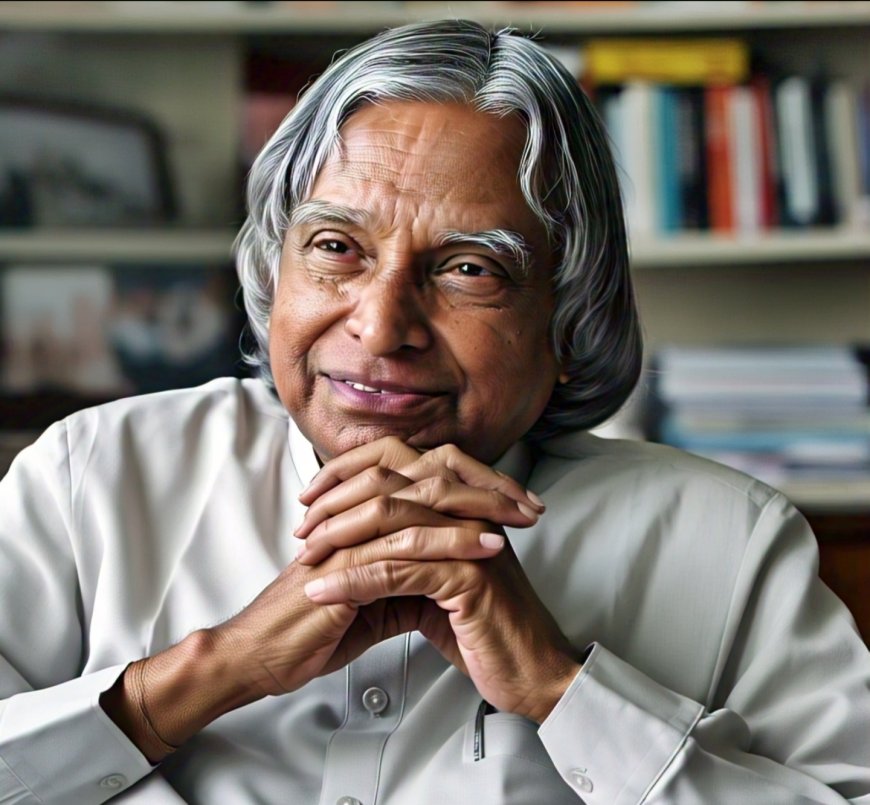Missile Man of India : Now a legacy with 'wings of fire'

In a world often defined by grandeur and power, the story of Dr. A.P.J. Abdul Kalam stands out as a beacon of humility, perseverance, and vision. Known as the "Missile Man of India" and the 11th President of India, Dr. Kalam's life is a testament to the transformative power of dreams, hard work, and dedication.
Today, the National Archives of India (NAI) proudly became the custodian of Dr. Kalam's private papers, acquired from the late president's family. These invaluable documents will be preserved as part of his enduring legacy, continuing to inspire countless young minds for generations to come.
Taking the legacy forward, the National Archives of India (NAI) today acquired the private papers of Late Dr. A.P.J. Abdul Kalam, comprising original correspondences, passport, aadhar card, pan card, tour reports, and the lecture delivered by Dr. Kalam in various universities as well as organizations. The collection also comprises several original photographs.
Donated by his family, this invaluable collection ensures that his inspiring journey and the principles he stood for will continue to inspire generations to come. The collection, now preserved by NAI, will serve as a powerful reminder of Dr. Kalam’s dedication to his nation and his commitment to empowering the youth of India.
Dr. A.P.J. Abdul Kalam’s life is a story of how one individual, through humility, perseverance, and vision, can shape the destiny of a nation. His legacy as the "People's President" lives on, not only through his scientific contributions but also through the countless young minds he inspired and the countless dreams he helped ignite. His journey reminds us that with dedication and a belief in our dreams, we too can change the world.
Born on October 15, 1931, in the humble town of Rameswaram, Tamil Nadu, Kalam's early life was shaped by the simplicity and struggles of his family. Despite facing financial hardships, his determination to rise above his circumstances fueled his passion for education. He pursued physics and aerospace engineering, setting the stage for a remarkable career in science and technology.
Dr. Kalam’s contributions to India's defense and space capabilities are legendary. Working with esteemed organizations like the Defence Research and Development Organisation (DRDO) and the Indian Space Research Organisation (ISRO), he played a pivotal role in India’s missile development programs. His leadership and expertise were instrumental in the successful Pokhran-II nuclear tests of 1998, solidifying India's position as a global power in defense and technology.
However, Dr. Kalam’s legacy transcends his scientific achievements. As India's President from 2002 to 2007, he became known as the "People's President," earning the love and respect of the masses with his simplicity, humility, and dedication to serving the nation. His presidency was marked by an unwavering commitment to uplifting the youth of India and inspiring them to dream big.
Dr. Kalam’s passion for igniting young minds was reflected in his many books, including the iconic "Wings of Fire." Through his words, he sought to instill in India’s youth the belief that no dream is too big, no challenge too difficult. He believed in the power of vision, education, and hard work to transform individuals and, by extension, nations. His famous mantra, "Dream, Dream, Dream," continues to resonate with generations of Indians, urging them to reach for the stars.
Even after his presidency, Dr. Kalam remained committed to his mission of educating and mentoring the youth. His post-presidency years were devoted to traveling across the country, delivering lectures, and inspiring students with his vision for a developed India. On July 27, 2015, while doing what he loved most—teaching at the Indian Institute of Management Shillong—Dr. Kalam passed away, leaving behind a legacy of kindness, knowledge, and vision.

 Chetan R @ vēritās news desk
Chetan R @ vēritās news desk